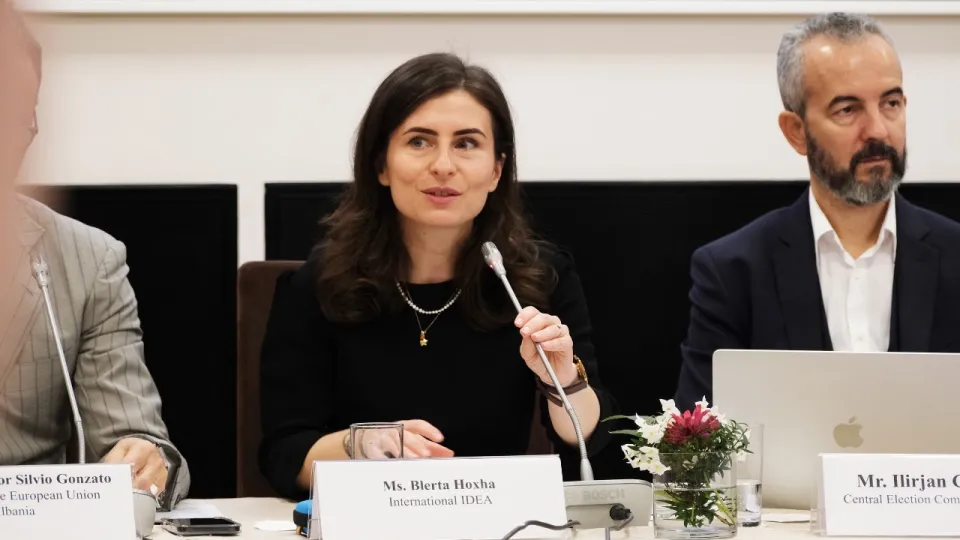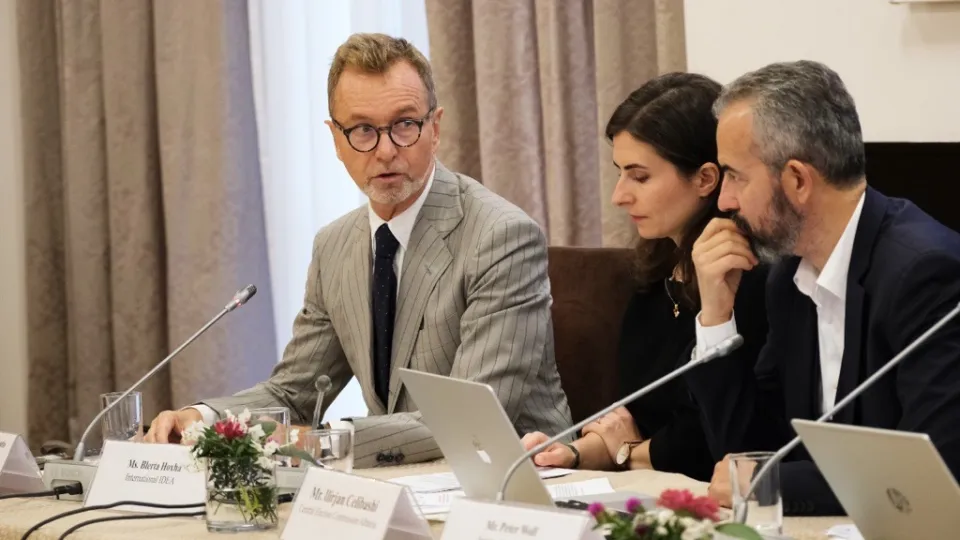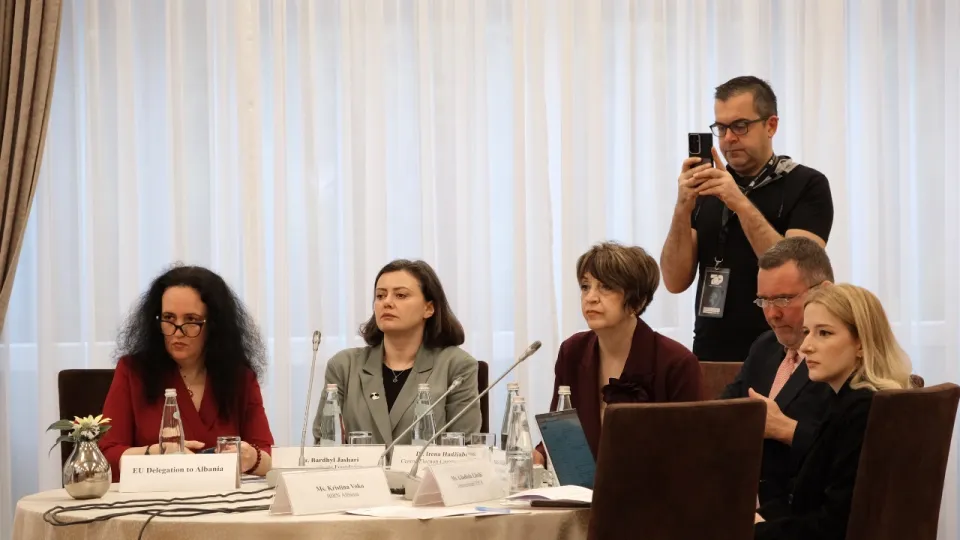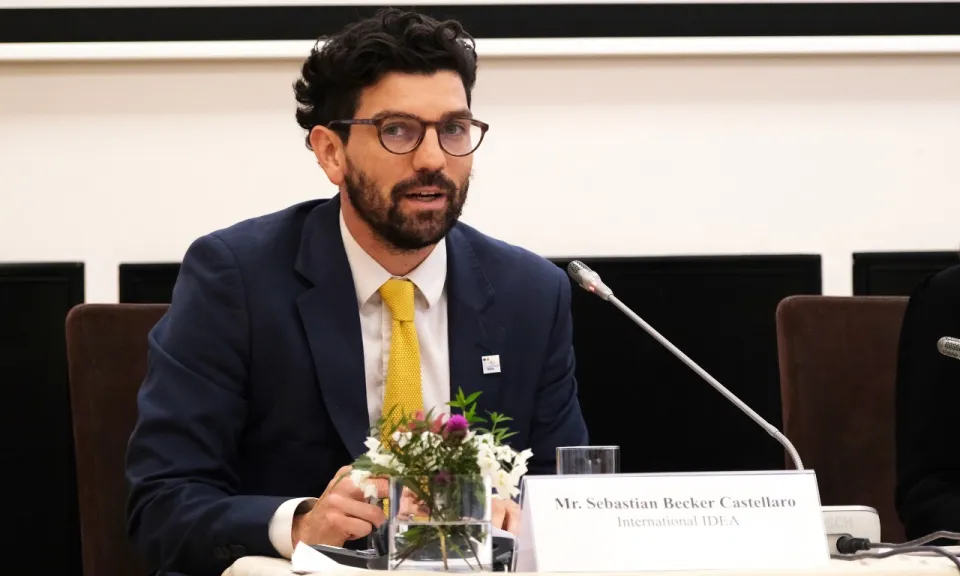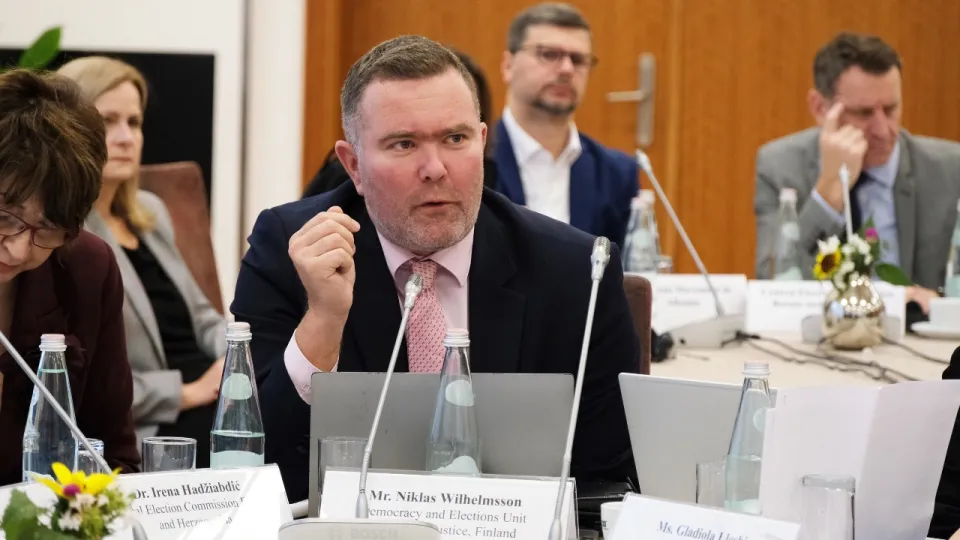Strengthening Electoral Integrity in the Digital Age: EU and Western Balkans Dialogue in Tirana
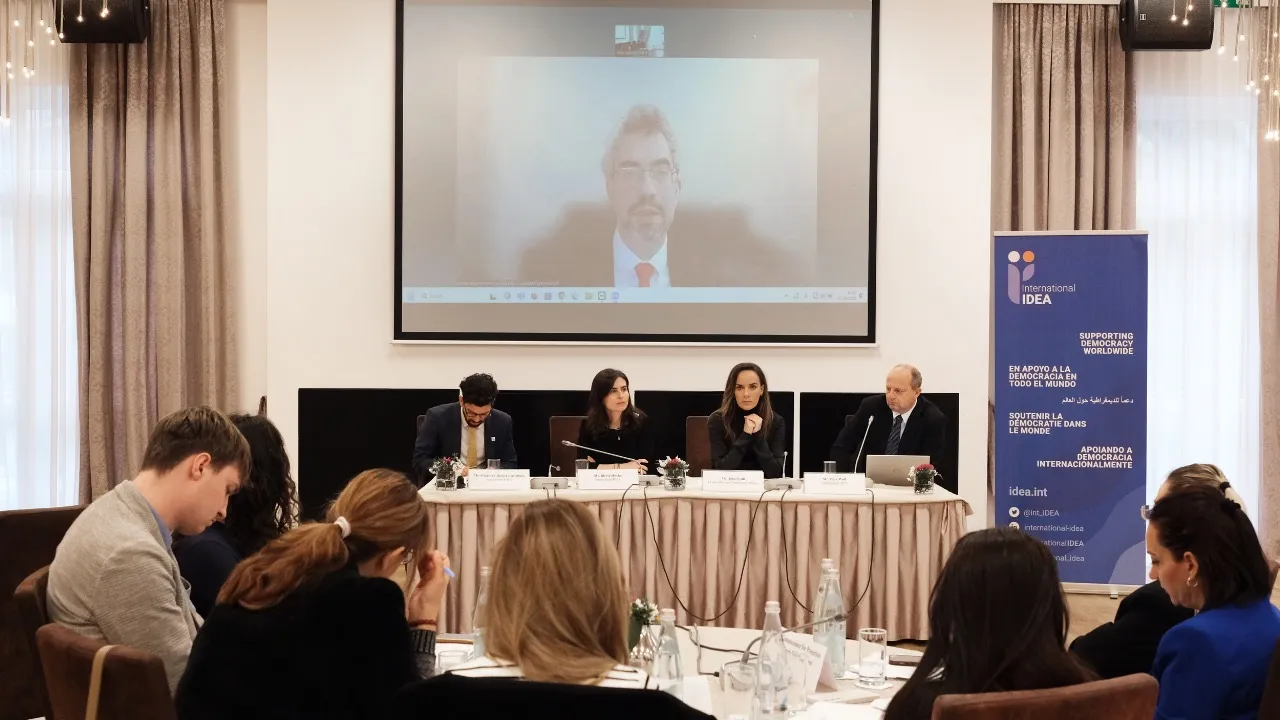
On 17 October, representatives from EU Member States and Western Balkans electoral authorities, independent institutions, civil society, and media experts gathered in Tirana for the regional conference “Overseeing Digitalization in Electoral Processes: Towards Closer Convergence Between the EU and the Western Balkans.”
Organized by the International Institute for Democracy and Electoral Assistance (International IDEA), in cooperation with the Central Election Commission of Albania and with the support of Stiftung Mercator, the event examined how digital transformation is reshaping the conduct and oversight of elections across Europe.
The conference explored the implementation and implications of the EU’s digital landmark legislation, including the Digital Services Act (DSA), AI Act, and Transparency and Targeting of Political Advertising Act (TTPA), and discussed how Western Balkan countries are progressing in aligning their frameworks with these complex EU standards.
Opening remarks from Peter Wolf (International IDEA), Ilirjan Celibashi (Central Election Commissioner of Albania), and H.E. Ambassador Silvio Gonzato (Delegation of the European Union to Albania) underscored the shared goal of ensuring that technological innovation strengthens, rather than undermines, democratic integrity.
Throughout the sessions, discussions revealed that while EU Member State electoral management bodies (EMBs) are already applying digital governance rules in practice, covering issues such as data protection, online campaigning, and AI oversight, Western Balkan EMBs are rapidly advancing their own frameworks in alignment with EU standards.
The perspectives shared were nuanced, detailed, and deeply comparative, offering a unique opportunity to assess how countries at different stages of EU integration are confronting similar challenges in safeguarding electoral integrity in a digitalized environment.
Case studies from Finland, Lithuania, Bosnia and Herzegovina, Albania, Serbia, and North Macedonia highlighted the diversity of national experiences. Contributions from DG JUST and EU EMBs offered valuable insights into the operationalization of the EU’s “digital rulebook,” including mechanisms for cooperation through the European Cooperation Network on Elections (ECNE) and the forthcoming European Democracy Shield Initiative.
In parallel, Western Balkan participants discussed practical challenges in areas such as online political advertising transparency, cybersecurity preparedness, and countering disinformation – issues central to both democratic resilience and EU accession reforms.
A dedicated peer-exchange session on overseeing online political finance delved into the forthcoming TTPA, which will set out new transparency requirements for online political advertising. Participants examined how these provisions will affect oversight bodies’ structures, competences, and collaboration with digital platforms, an area where candidate countries are already developing innovative approaches despite limited resources.
This event emphasized the importance of structured cooperation and knowledge exchange between EU and Western Balkan EMBs, while the latter remain determined to uphold transparency and trust in its electoral processes while exploring innovation.
The conference demonstrated that while the path to digital convergence is complex, it is also a shared European endeavour, one that must be grounded in cooperation, mutual learning, and a collective commitment to democratic integrity.
The event took place in the framework of the project Closing the Digital Gap on Elections in EU Accession, funded by the Stiftung Mercator.
Next stop: Chisinau, Moldova.
